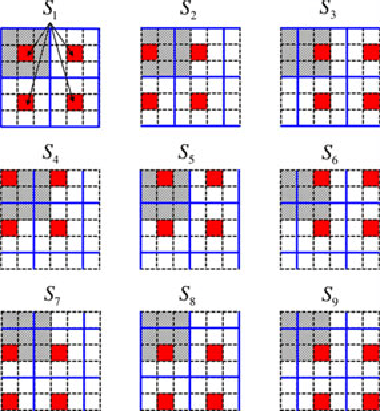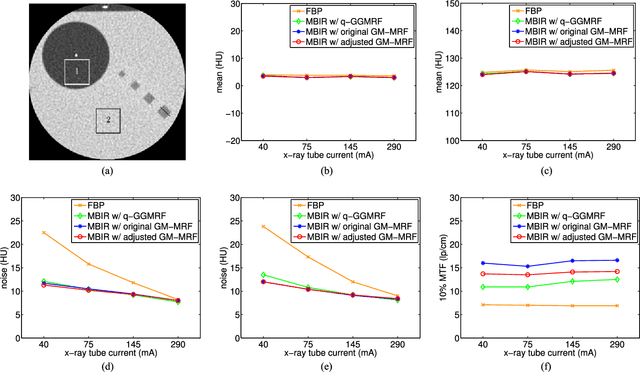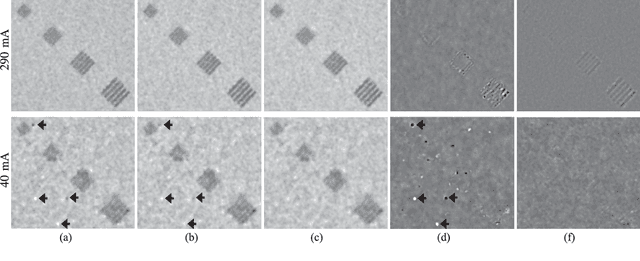A Gaussian Mixture MRF for Model-Based Iterative Reconstruction with Applications to Low-Dose X-ray CT
Paper and Code
Jun 13, 2016



Markov random fields (MRFs) have been widely used as prior models in various inverse problems such as tomographic reconstruction. While MRFs provide a simple and often effective way to model the spatial dependencies in images, they suffer from the fact that parameter estimation is difficult. In practice, this means that MRFs typically have very simple structure that cannot completely capture the subtle characteristics of complex images. In this paper, we present a novel Gaussian mixture Markov random field model (GM-MRF) that can be used as a very expressive prior model for inverse problems such as denoising and reconstruction. The GM-MRF forms a global image model by merging together individual Gaussian-mixture models (GMMs) for image patches. In addition, we present a novel analytical framework for computing MAP estimates using the GM-MRF prior model through the construction of surrogate functions that result in a sequence of quadratic optimizations. We also introduce a simple but effective method to adjust the GM-MRF so as to control the sharpness in low- and high-contrast regions of the reconstruction separately. We demonstrate the value of the model with experiments including image denoising and low-dose CT reconstruction.
 Add to Chrome
Add to Chrome Add to Firefox
Add to Firefox Add to Edge
Add to Edge